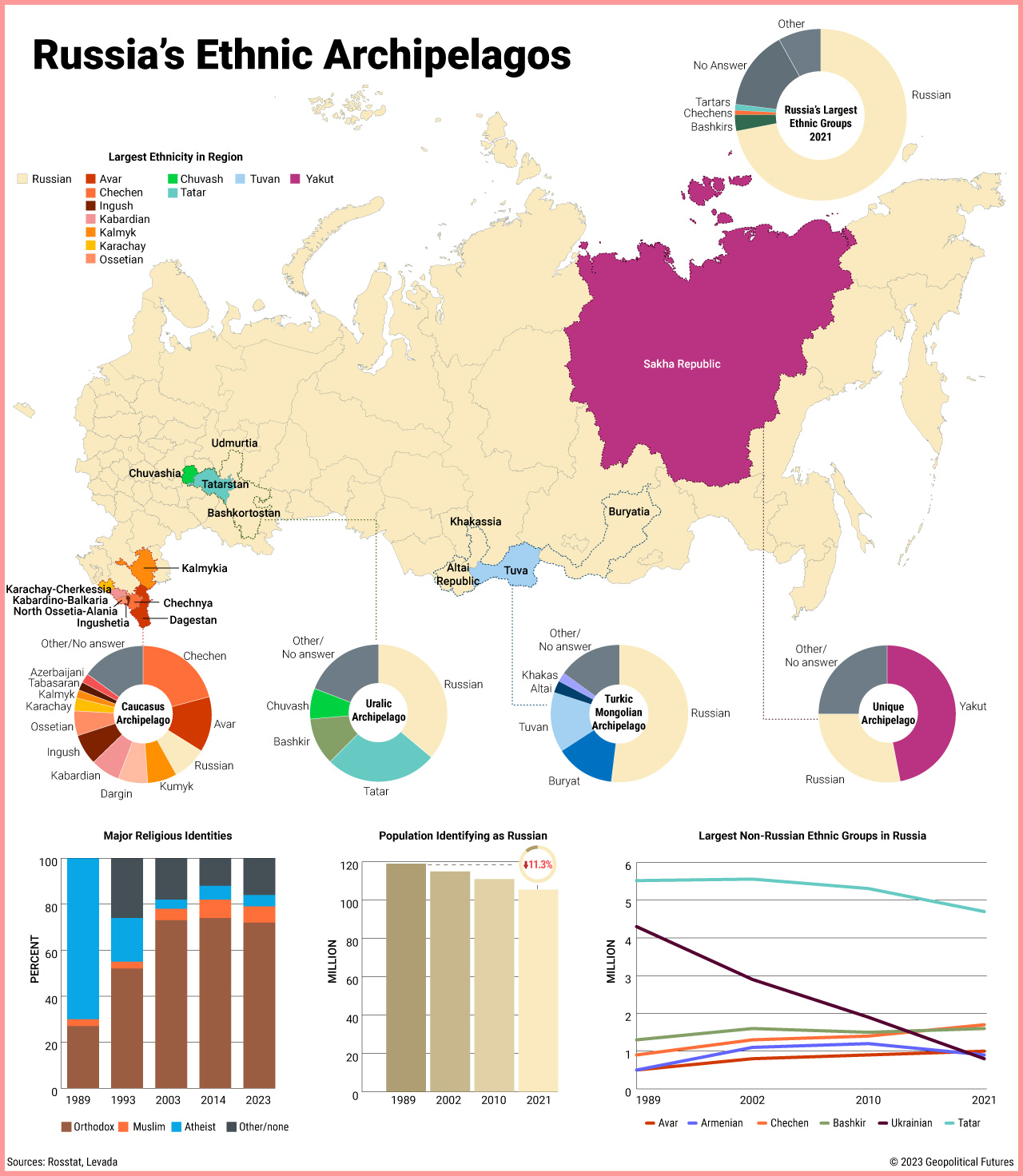In the Russian Federation, a mosaic of 195 ethnic groups coexists, with six of these groups boasting populations exceeding 1 million. Moscow’s policy, aimed at preserving and promoting ethnic identities and folk traditions, serves dual strategic purposes. Primarily, it acts as a state mechanism to uphold the diverse tapestry of cultures, religions and ethnic traditions. However, there is a more pragmatic aspect to this policy.
The Kremlin’s support of national identities is intertwined with its need to manage vast, resource-rich territories like Siberia and strategically important border regions such as the Caucasus. By championing ethnic identity, Moscow wields soft power to strengthen ties between these distant regions and the central government, thereby mitigating potential separatist or protest sentiments that could arise from perceived infringements on religious or linguistic rights.
Yet, this policy is not without its challenges for the Russian state. The various ethnic groups within Russia exhibit differing rates of natural population growth, migration trends and shifts in ethnic identity. One recent trend stands out: The proportion of the population identifying as ethnically Russian is decreasing, while groups with higher birth rates are on the rise. This demographic shift poses a long-term challenge to Moscow’s control over regions with a growing non-Russian populace, potentially transforming these areas into socio-political archipelagos within the Russian state. Therefore, the Kremlin’s approach to managing its ethnically diverse population is not only a cultural endeavor but also a key element in its strategy to maintain national cohesion and state integrity.




 Special Collection – The Middle East
Special Collection – The Middle East